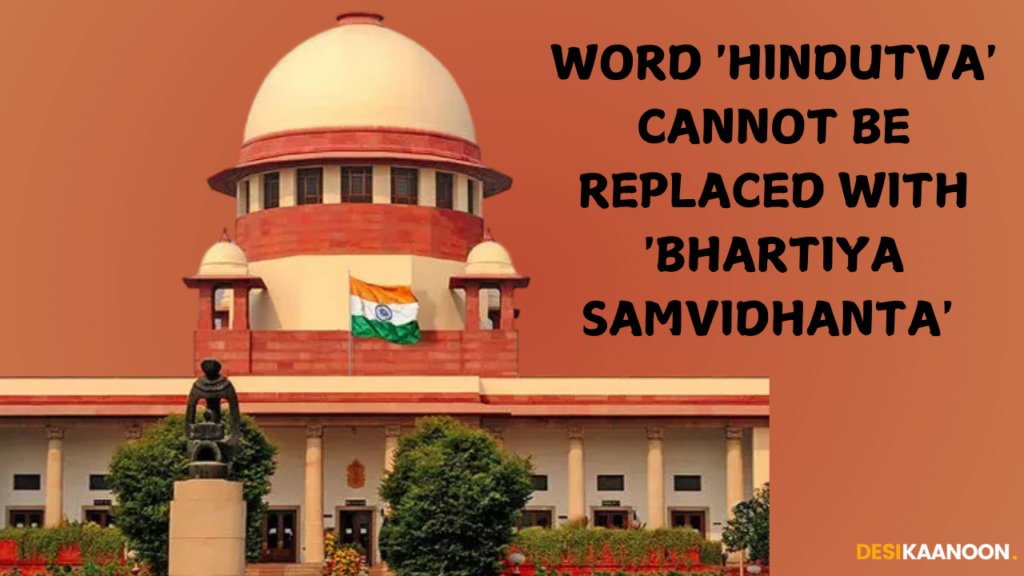Aastha Pareek
On October 21, the Supreme Court of India dismissed a plea to replace the term “Hindutva” with “Bharatiya Samvidhanatva” (Indian Constitutionalism) in political discourse. The petitioners argued that ‘Hindutva‘ undermines India’s secular ethos and promotes cultural exclusivity, while ‘Bharatiya Samvidhanatva‘ better reflects the nation’s diversity and constitutional values.
The Court upheld the term ‘Hindutva‘ as a legitimate expression of cultural identity, emphasizing the importance of free speech and the pluralistic nature of Indian society. It ruled that while cultural identities can exist in the public sphere, they must co-exist with constitutional principles.
This decision has significant implications for political discourse in India, reaffirming the legitimacy of cultural identity while emphasizing the need for inclusivity and dialogue within a democratic framework. The ruling calls for a nuanced understanding of how terms like ‘Hindutva‘ shape public identity and governance in contemporary India.

